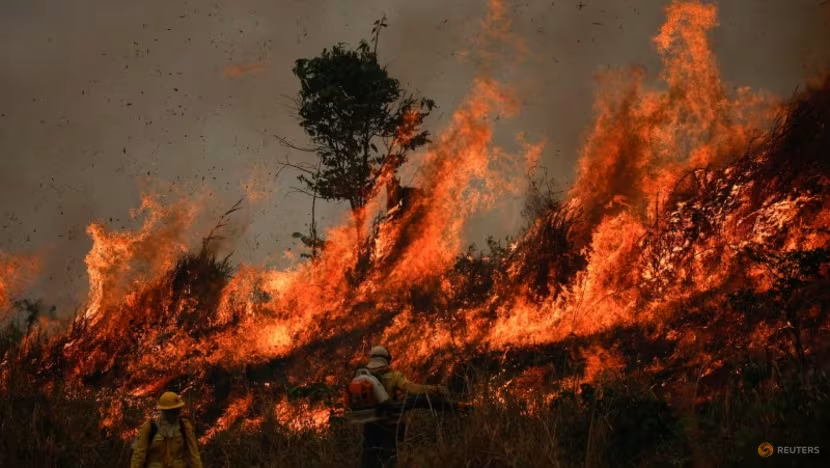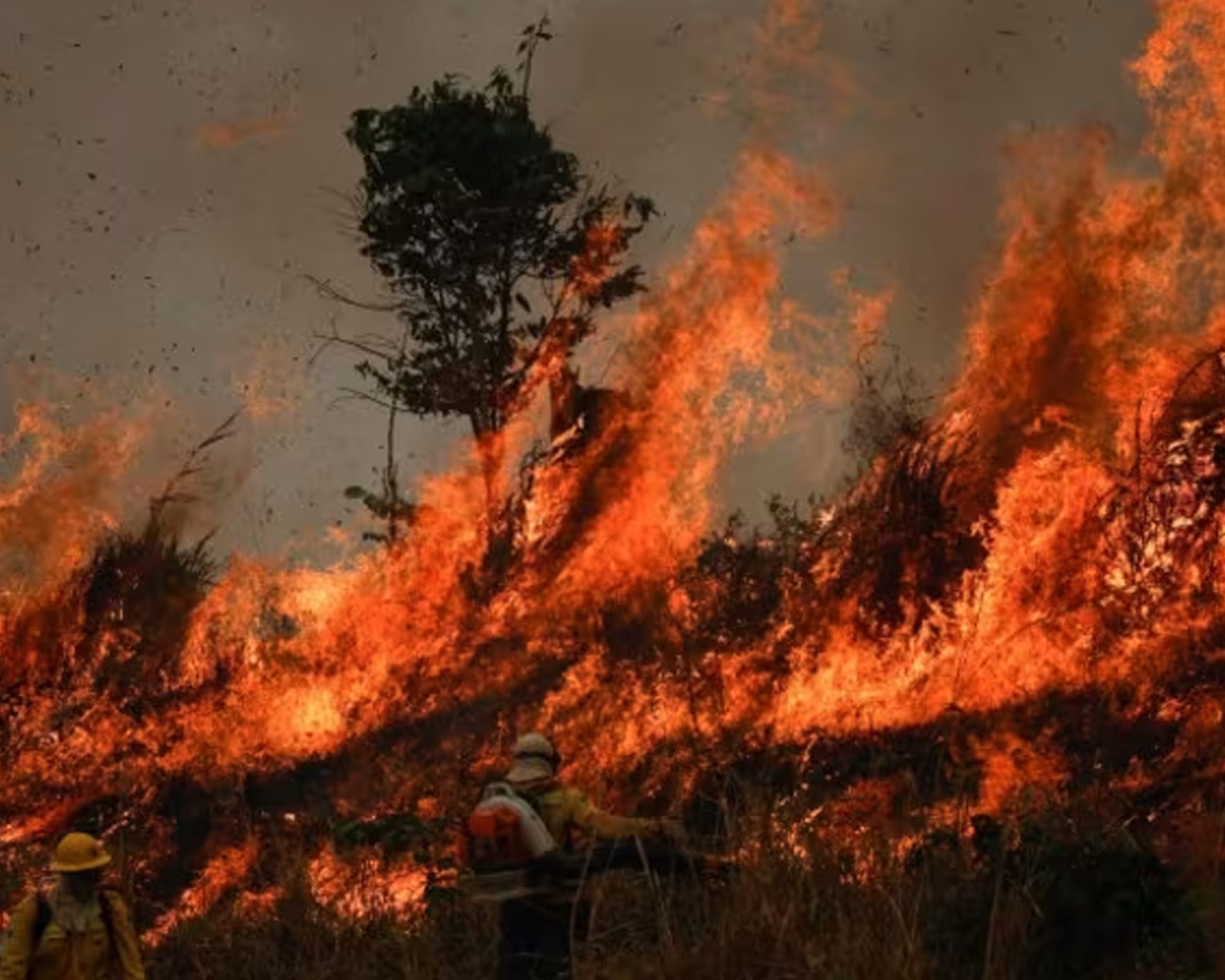
Members of Brazilian Institute for the Environment and Renewable Natural Resources (IBAMA) fire brigade work to extinguish a fire rising in Amazon rainforest in Apui, Amazonas state, Brazil, Aug 8, 2024. (Photo: REUTERS/Adriano Machado)
PORTO VELHO, Brazil: Residents of Porto Velho in the Brazilian Amazon have barely seen sunlight in days as a thick cloud of smoke from forest fires envelops their city.
“We are struggling to breathe,” said 30-year-old teacher Tayane Moraes, one of some 460,000 people who live in the city near the border with Bolivia.
On Tuesday (Aug 20), the concentration of cancer-causing microparticles known as PM2.5 reached 56.5 micrograms per cubic metre of air in Porto Velho – 11 times more than the limit recommended by the World Health Organization and the worst of Brazil’s big cities.
Inhaling PM2.5 has been found to increase the risk of lung cancer, heart disease, stroke, diabetes and a range of other health problems.
On Aug 14, the level was a “dangerous” 246.4 micrograms per cubic metre, according to the IQAir monitoring company.
It can be difficult to escape the smoke, even at home.
“It’s terrible, yesterday I woke up at midnight and my eyes were tingling because of this smoke entering my house,” 62-year-old retiree Carlos Fernandes told AFP.
The government of Rondonia state believes illegal fires, often started by farmers clearing land, are one cause of the disaster and has launched an online campaign calling on the population to report them.
